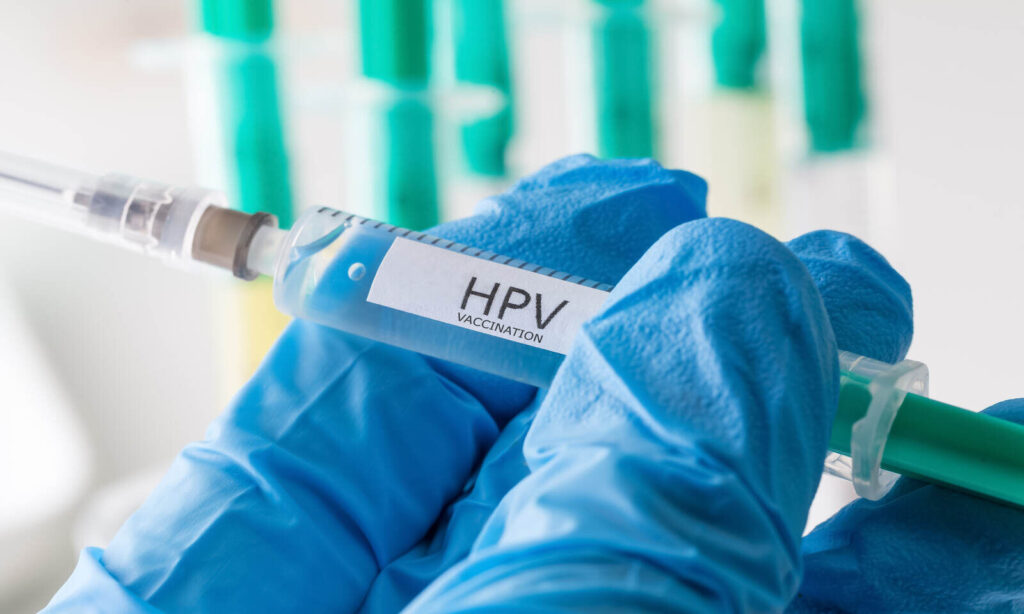HPV vaccination – Everything you need to know
What is HPV?
HPV is one of the most common sexually transmitted infections. The infection gets passed from one person to another through direct skin-to-skin contact during various forms of sexual activity. Sexually active males and females get affected by HPV at some point in their life. The infection gets subjugated on its own with the help of our immune system. Sometimes, the infection gets turned into a genital wart. Sometimes, HPV turns into cancer. This is a dangerous condition. It causes cervical cancer. An estimation suggests that 3,00,000 women die of cervical cancer each year. 90% of the deaths are avoidable with important procedures. HPV vaccination and regular cervical screening are the most effective ways to prevent cervical cancer. Prevention is always better than cure. In the world, there are about 43 million HPV infections and many of the affected patients are in their early teens and early 20s. HPV is a different virus than HIV and HSV.
There were about 43 million HPV infections in 2018, many among people in their late teens and early 20s. There are many different types of HPV. Some types can cause health problems, including genital warts and cancers. But some vaccines can stop these health problems from happening. HPV is a different virus than HIV and HSV (herpes).
How is HPV spread?
HPV is caused mainly by having vaginal, anal, or oral sex with someone who possesses the virus. This condition is spread mostly during vaginal or anal sex. It is also said that HPV spreads through very close skin-to-skin contact during sex. HPV condition gets transmitted to the receiver without showing symptoms in the body of the transmitter patient. Sexual activity might induce HPV even when you have sex with one person. One can develop symptoms years after having sex with someone who has the infection.
How does HPV vaccination work against cervical cancer?
HPV vaccinations work very similarly to other immunizations that protect individuals against viral infections. It induces the production of antibodies in the body such that the virus is prevented from infecting the cells in case of a future encounter with HPV. The HPV vaccines are based on virus-like particles in the current medical world. HPV vaccines lack HPV DNA. The vaccines are formed by the HPV surface components. But the vaccine lacks the danger o HPV because it lacks the HPV DNA. The VLPs promote antibody production in the body in vast quantities. This makes the vaccine efficient and effective. The HPV vaccine is only for HPV and not for other Sexually Transmitted Diseases. The vaccination can not cure the existing condition of HPV. Apart from vaccination, there are various other means to prevent HPV condition. Using condoms in the right way during sex might lower the chances of getting HPV, but the virus might affect the areas that condom does not cover. So, condoms may not fully protect against HPV.
Types of HPV vaccines available in India:
In a second-world country like India, there are two types of HPV vaccines available. Both of the vaccines are licensed globally. The first type is a quadrivalent vaccine called Gardasil, while the second type is a bivalent type by the name Cervarix. Both of the vaccines are manufactured by recombinant DNA technology. Recombinant DNA technology is a method in which non-infectious VLP’s consisting of the HPV L1 protein are produced which plays a crucial role.
Who needs HPV protection and why?
HPV vaccination is recommended for kids ages 11 to 12 across the world. Sometimes, it is better to get the vaccination at a relatively young age of 9. The vaccination is recommended for all women till the age of 26 if they aren’t vaccinated properly at a young age. Scientists feel that the vaccination is effective when administered before people get their first intercourse. While the Human Papilloma Virus is more prominent in second-world countries than in developed countries. The risk factors associated with the disease are wide and large. There are various reasons such as early activity such as smoking, and the use of oral contraceptives to engage with multiple partners. In the year 2018, India recorded the maximum occurrences of cervical cancer demises. The rate went up to 60,000. India and China accounted for one-third of the global cervical cancer issues. It takes more than just the treatment to fight against HPV and cervical cancer.
Proper care and awareness for HPV are not sufficient in India when compared to the rate at which the disease spreads. Various medical centers provide vaccination and treatment for HPV. One of the institutions is ProLife Medical Center. Profile Medical Center aims at providing supreme maternity care for women. They specialize in adolescent gynecology, maternity, and much more. The proLife medical center focuses on physical and mental health. They offer counseling and awareness and they are planning to prevent HPV in the future generation. Get your Human papillomavirus vaccine from Prolife Center and prevent the outbreak of HPV.


